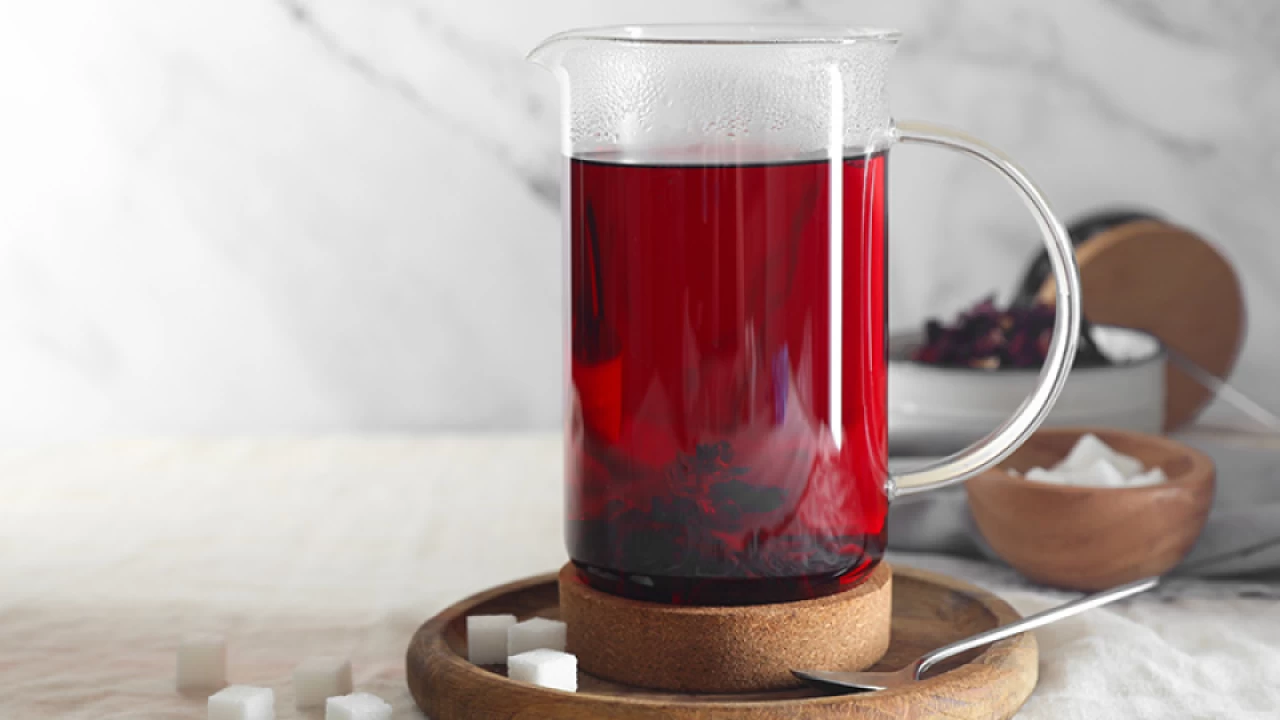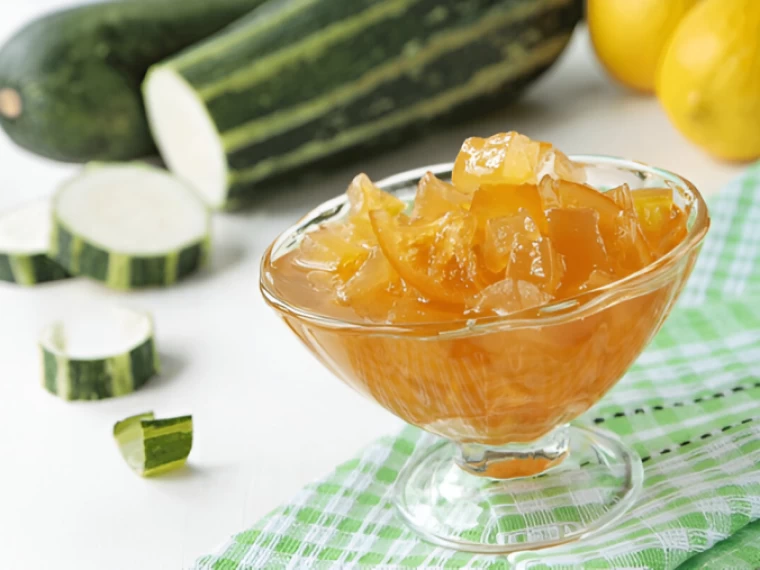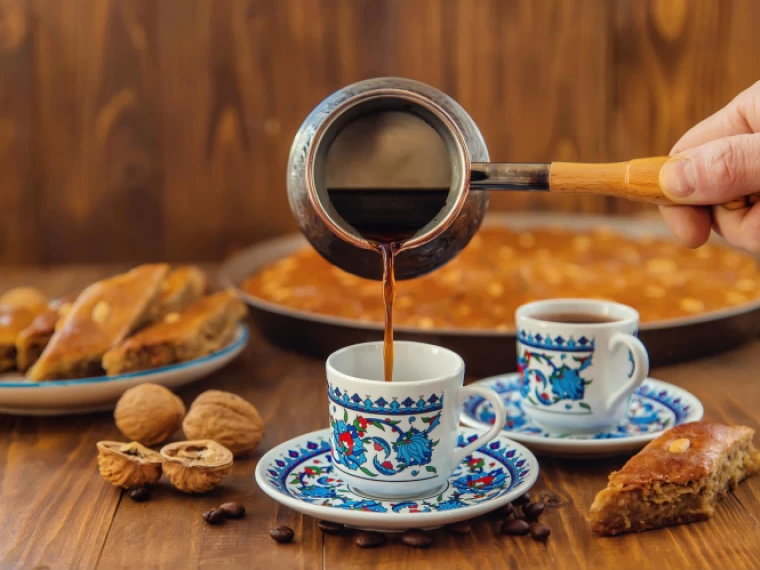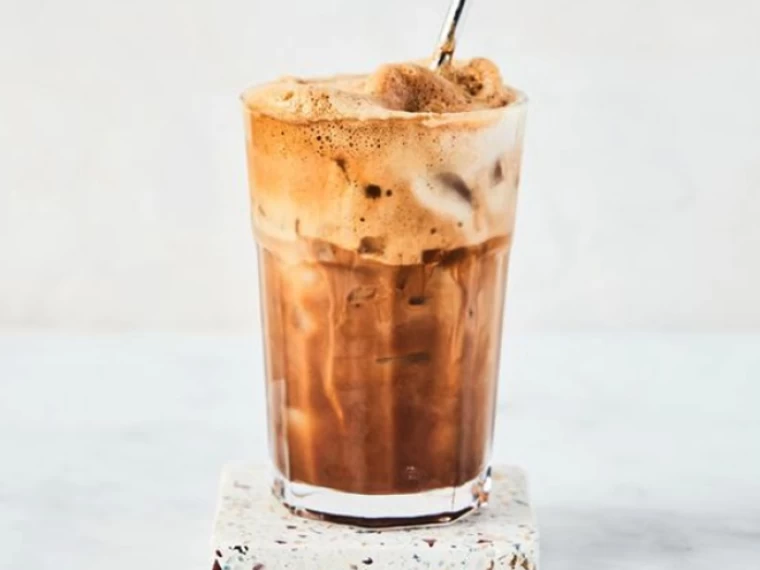Hibiscus tea, also known scientifically as Hibiscus sabdariffa, is a popular beverage in many cultures. This tea is made from the dried flowers of the hibiscus plant and is favored by many for its sour taste and numerous health benefits. One of the most important benefits of hibiscus tea is its effect on reducing blood pressure. In this article, we will take a closer look at these benefits and examine the role of hibiscus tea in controlling blood pressure.
High Blood Pressure
High blood pressure is a major public health problem in today's world. This issue can lead to more serious complications such as heart disease and stroke. Therefore, using natural and effective methods to control blood pressure has become very important. One of these methods is the consumption of hibiscus tea, which has been shown in various studies to help reduce blood pressure.
Reducing Blood Pressure with Hibiscus Tea
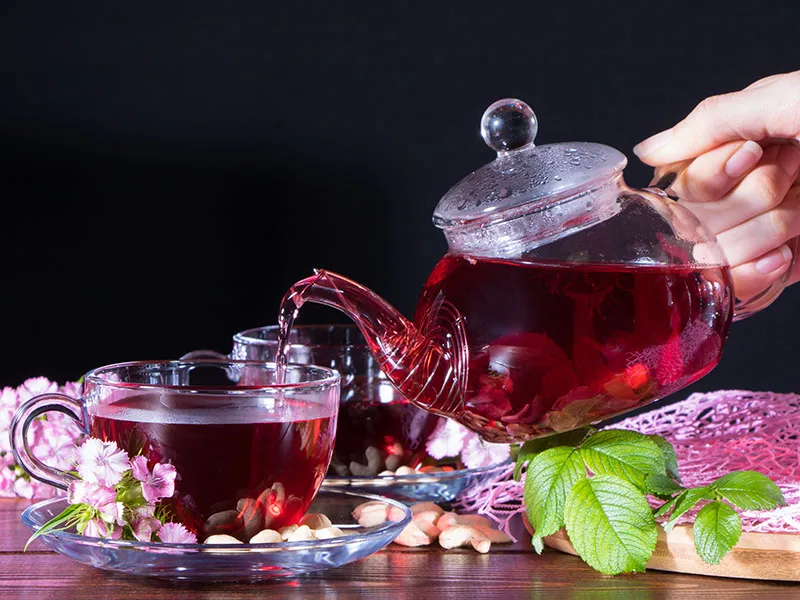
Hibiscus tea, as a natural and popular beverage, has significant effects on reducing blood pressure. Research has shown that regular consumption of hibiscus tea can help lower both systolic and diastolic blood pressure. This effect is attributed to the flavonoid and antioxidant compounds found in hibiscus tea, which can inhibit certain enzymes involved in blood pressure regulation. Additionally, the diuretic property of hibiscus tea reduces blood volume, thereby lowering blood pressure. These features have made hibiscus tea a natural and effective solution for controlling and reducing blood pressure.
Reducing Systolic Blood Pressure
Various studies have shown that regular consumption of hibiscus tea can help reduce systolic blood pressure. Systolic blood pressure is the pressure exerted by the blood on the walls of the arteries during heart contraction. This type of blood pressure usually increases with age and factors such as stress, unhealthy diet, and lack of physical activity. Hibiscus tea, with its flavonoid and strong antioxidant compounds, can help reduce this pressure.
How Does Hibiscus Tea Reduce Blood Pressure?
The exact mechanism of hibiscus tea in reducing blood pressure is not yet fully understood, but research suggests that this tea can be effective by inhibiting certain enzymes involved in blood pressure regulation. Additionally, the diuretic property of hibiscus tea can help reduce blood volume, thereby lowering blood pressure.
Improving Heart Health with Hibiscus Tea
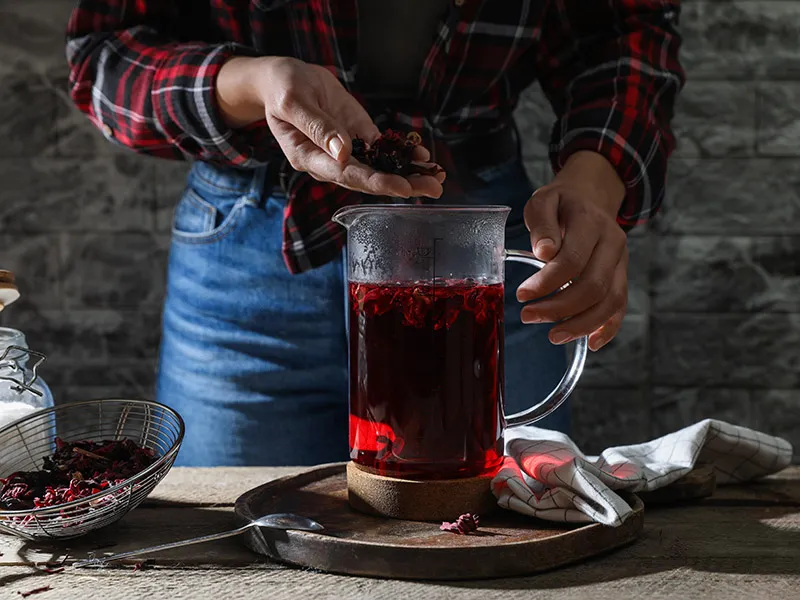
Hibiscus tea significantly contributes to improving heart health. Regular consumption of hibiscus tea can reduce LDL (bad) cholesterol levels and increase HDL (good) cholesterol levels, which helps reduce the risk of heart disease. Additionally, the antioxidant compounds in hibiscus tea help reduce inflammation and improve the function of blood vessel walls, leading to better blood flow and reduced pressure on the heart. These properties make hibiscus tea an effective and natural option for maintaining and improving heart health.
Reducing Cholesterol with Hibiscus Tea
In addition to reducing blood pressure, hibiscus tea can help lower blood cholesterol levels. High cholesterol is one of the main risk factors for heart disease. Studies have shown that consuming hibiscus tea can reduce LDL (bad) cholesterol levels and increase HDL (good) cholesterol levels.
Improving Vascular Function
Another benefit of hibiscus tea for heart health is improving vascular function. The antioxidant compounds in hibiscus tea can help reduce inflammation and improve the function of blood vessel walls. This allows blood to flow more easily through the vessels and reduces the pressure on the heart.
Anti-inflammatory Effects
Hibiscus tea has significant anti-inflammatory effects due to its strong antioxidant compounds. This beverage can help reduce chronic inflammation in the body, which is one of the main factors in many chronic diseases, including heart and vascular diseases. The flavonoids and polyphenols in hibiscus tea help reduce the production of inflammatory molecules and inhibit the activity of enzymes related to inflammation. By reducing inflammation, hibiscus tea can improve overall body health and reduce the risk of chronic inflammatory diseases. These features make hibiscus tea a beneficial beverage for reducing systemic inflammation and maintaining general health.
Effect on Vascular Inflammation
Vascular inflammation is one of the important factors in increasing blood pressure. Consuming hibiscus tea can help reduce vascular inflammation and improve vascular health. This anti-inflammatory property can also reduce the risk of heart and vascular diseases.
Role of Hibiscus Tea in Weight Management
One of the effects of hibiscus tea that can help control blood pressure is appetite reduction. Consuming hibiscus tea can help reduce appetite and consequently reduce weight. Weight loss can directly help reduce blood pressure, as excess weight is one of the main factors in increasing blood pressure.
Increasing Metabolism
Hibiscus tea can help increase the body's metabolism. A high metabolism helps the body burn calories faster, thereby reducing body weight. Weight loss and maintaining a healthy weight play an important role in controlling blood pressure.
Boosting the Immune System
The antioxidants in hibiscus tea, in addition to protecting cells, help boost the body's immune system. A stronger immune system can protect the body against diseases and infections and help maintain overall body health.
Conclusion
Hibiscus tea, with its numerous benefits, including reducing blood pressure, improving heart health, anti-inflammatory effects, weight management, and antioxidant benefits, can be a healthy and beneficial beverage in the daily diet. Regular consumption of hibiscus tea can help reduce blood pressure and improve overall body health. However, it is recommended to consult with your doctor before starting regular consumption of this tea.
Frequently Asked Questions
- Is hibiscus tea suitable for everyone?
Hibiscus tea is generally safe for most people, but it may not be suitable for some with kidney problems or specific sensitivities. Additionally, excessive consumption of this tea can lead to excessively low blood pressure.
- How can I prepare hibiscus tea?
Hibiscus tea is available in packaged form in grocery stores and herbal shops. You can consume it hot or cold. To prepare, simply place the dried hibiscus flowers in boiling water, let it steep for a few minutes, strain, and enjoy.
- How much hibiscus tea should I consume daily?
Consuming 1 to 2 cups of hibiscus tea per day is generally safe and can provide significant health benefits. However, it is best to consult with your doctor before increasing your intake.
- Does hibiscus tea have any side effects?
Moderate consumption of hibiscus tea is usually without side effects, but excessive consumption may lead to digestive issues and excessively low blood pressure. If any adverse effects occur, stop consumption and consult with your doctor.
- Can hibiscus tea interact with other medications?
Hibiscus tea may interact with some blood pressure medications and diuretics. If you are taking any specific medications, consult with your doctor before starting to consume hibiscus tea.
Given the numerous benefits of hibiscus tea, adding it to your daily diet can help improve overall health and control blood pressure.

